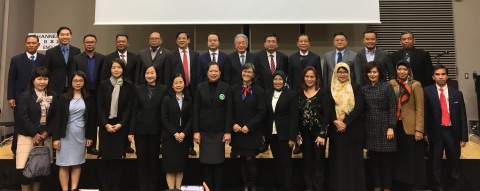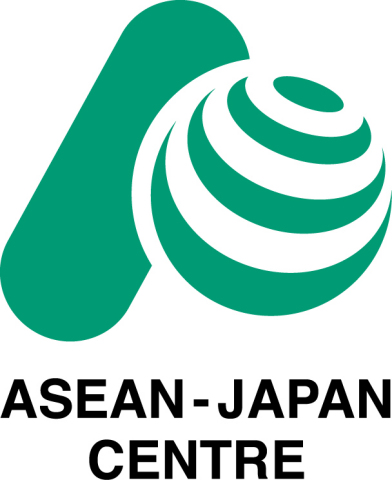TOKYO--(BUSINESS WIRE)--The ASEAN-Japan Centre (AJC) held the "ASEAN Services Trade Forum – Health and Social Services –" on 27 November 2019 in Tokyo, Japan. 107 participants from Japanese private sector, government agencies, academia as well as representatives from nine ASEAN countries and ASEAN embassies in Tokyo joined the Forum.
Human development depends on and determines economic and social development. The productivity of labour force, which depends on its health status, plays a crucial role in determining the overall productivity. The importance of sustaining availability and providing easy access to quality healthcare infrastructure to the residents of ASEAN cannot be overemphasized. ASEAN governments have been aiming to achieve the Universal Health Coverage (UHC)1 by 2030, as part of the Sustainable Development Goals (SDGs). Japan has been working closely with ASEAN to achieve this goal, including through the Japan-ASEAN Health Initiative which supports human resources development towards the promotion of healthy lifestyles, preventing diseases and raising healthcare standards in ASEAN, and the Japan-ASEAN UHC Initiative with focus on population ageing, which among others supports the conduct of Japan-ASEAN joint research, and explores future collaborative forums or mechanism towards sustainable UHC and addressing healthy and active ageing.
Against this backdrop, AJC organized the ASEAN Services Trade Forum which focuses on the status and investment opportunities in health and social services in ASEAN. The Forum provided a platform for Japanese services providers to have face-to-face discussions with government representatives from ASEAN in charge of health and social services.
At the Forum, presentations were made by Keiichiro Oizumi, professor at the Asia University and Upalat Korwatanasakul, Programme Manager at the Research and Policy Analysis Cluster of AJC, on topics including the current status and the emerging needs of health and social services in ASEAN. At the panel discussion, Naoki Nomura, the Board Chairman of the Social Medical Corporation Sanshikai, which opened a medical clinic in Yangon, Myanmar in 2019, as well as Kazumi Nishikawa, Director of the Healthcare Industries Division, Ministry of Economy, Trade and Industry (METI) of Japan and Kaliappa Kalirajan, professor at the Australia National University presented how Japan and ASEAN could further enhance their partnership in improving health and social services in ASEAN.
Representatives from Cambodia, Indonesia, Lao PDR, Malaysia, Myanmar, Philippines, Singapore, Thailand and Viet Nam also presented the overview of health and social services in their respective countries and explained the investment opportunities for Japanese businesses.
After the Forum, 38 individual business meetings were organized between ASEAN government representatives and Japanese companies to discuss the concrete business opportunities in their respective countries.
“The Forum provided a good opportunity to interact directly with Japanese businesses. We will continue our effort to invite Japanese investment in quality health and social services” said a representative from ASEAN at the end of the Forum.
AJC is an intergovernmental organization established by the ASEAN Member States and Japan in 1981, with objectives to promote trade, investment, tourism as well as people-to-people exchanges between the ASEAN Member States and Japan. AJC has been conducting the research and analysis on the services trade in ASEAN since 2016. In 2019, AJC conducted the studies on social services in ASEAN, including health and social services and education services.
1 “Universal health coverage is defined as ensuring that all people have access to needed health services (including prevention, promotion, treatment, rehabilitation and palliation) of sufficient quality to be effective while also ensuring that the use of these services does not expose the user the financial hardship” (World Health Organization).




